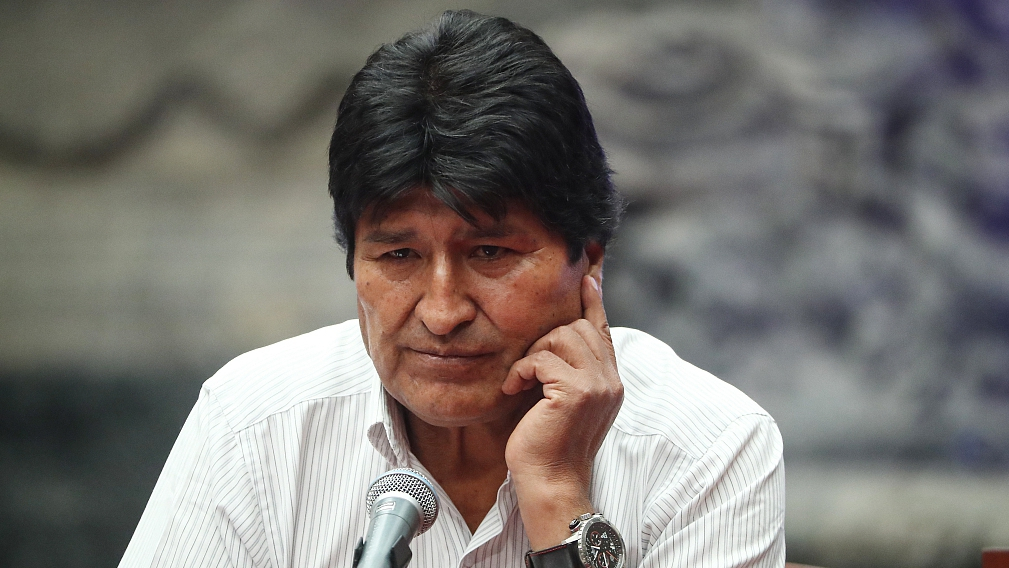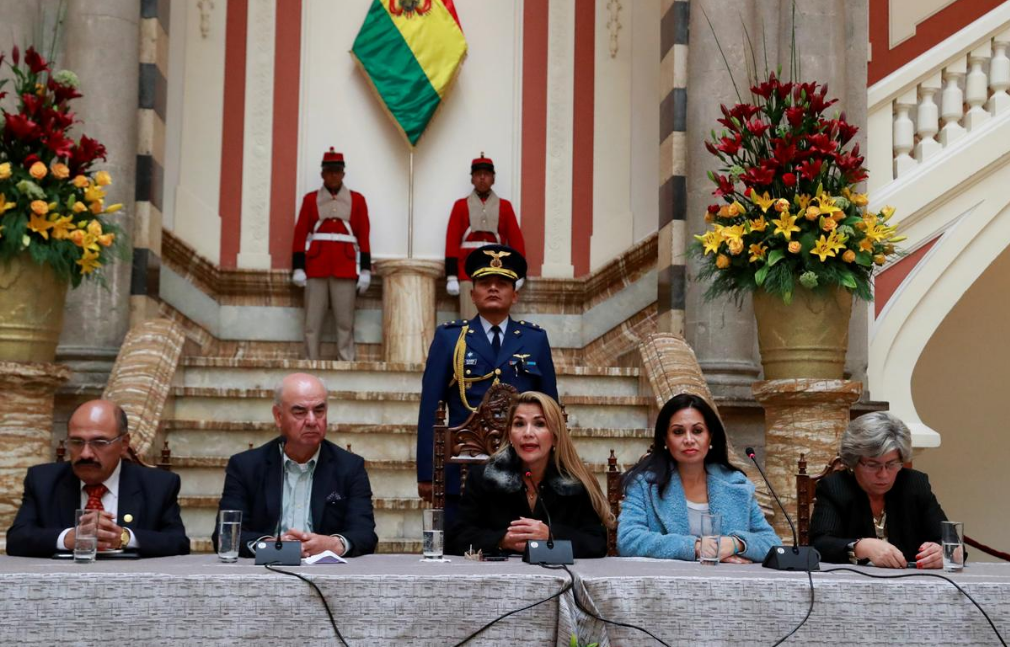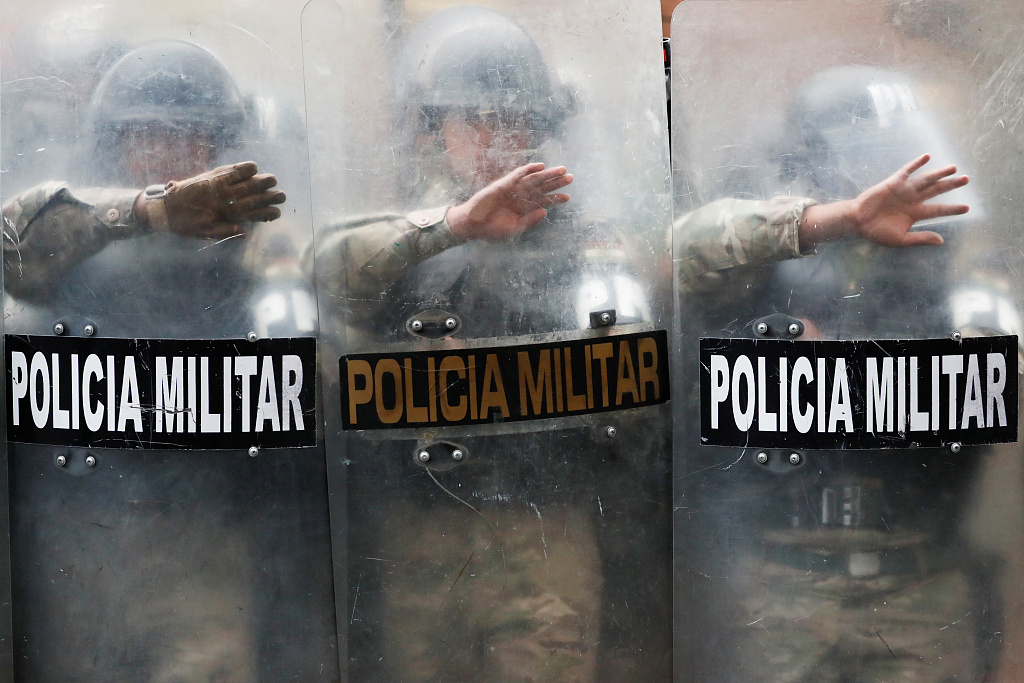Ousted Bolivian president Evo Morales said on Friday that fresh elections could be held without him, potentially removing an obstacle to choosing a new leader in the South American country thrown into turmoil by his resignation over a contested vote. 
Evo Morales attends a press conference at Museo de la Ciudad de Mexico in Mexico City, Mexico, November 13, 2019. (Photos: VCG)
The interim government and lawmakers from Morales' Movement for Socialism appear to have reached an agreement this week to hold a new presidential election, following a vote widely seen as tainted that led to his fall.

Bolivia's interim president Jeanine Anez (C) speaks to the media at the presidential palace in La Paz, Bolivia, November 15, 2019.
Interim president Jeanine Anez has said Morales himself would not be welcome as a candidate in the next election.
"For the sake of democracy, if they don't want me to take part, I have no problem not taking part in new elections," Morales said. "I just wonder why there is so much fear of Evo."
The fall of Latin America's longest-serving contemporary president added to a wave of unrest in the region, including in nearby Ecuador and Chile, where protesters berated leaders over social inequalities.
Striking a conciliatory tone, Morales celebrated the talks with his opponents, saying they were needed to ensure a new government by January, in a time frame established by the constitution.
"That's why the dialog, right and left, is so important," he said, adding he did not know who his party's candidate would be. "The people decide," he said.
Morales and his vice president fled the country earlier this week, and were given asylum in Mexico. But protests by Morales' supporters have continued in capital La Paz, nearby El Alto, and the central city of Cochabamba, where hundreds have reportedly been detained in violent clashes.
Bolivia 'kicks out' Cubans, Venezuelans for allegedly fueling unrest
The interim government also said it had asked Venezuelan and Cuban officials to leave the country, including scores of Cuban doctors, accusing them of instigating unrest in the wake of the resignation of Morales.
The foreign policy shake-up in Bolivia, outlined by the new foreign minister on Friday, came as protests against the four-day-old government of conservative interim President Jeanine Anez roil the country amid its biggest political upheaval in over a decade.

Military Police officers stand guard as supporters of former Bolivian president Evo Morales take part in a protest in La Paz, Bolivia, November 14, 2019.
In a statement, Cuba's foreign ministry denied its doctors had supported any protests and said some had been attacked. Venezuela's foreign ministry did not immediately respond to requests for comments.
Venezuela and Cuba were key allies for leftist Morales, who swept to office as the country's first indigenous president in 2006 and resigned under pressure on Sunday after weeks of protests and violence over a disputed October 20 election.
(With input from Reuters)


